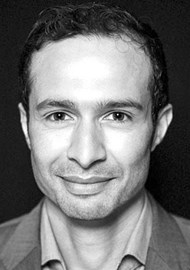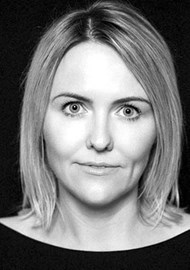COVID-19 has brought unprecedented challenges to the world of aesthetic medicine. Simon and Emma Ravichandran offer their perspective on the crisis so far and look to the future.
The impact of the coronavirus pandemic that started at the end of 2019 in Wuhan, China has had ramifications globally on every individual’s way of life. The mainstay of managing the pandemic has been to reduce the spread of the contagion with various quarantining measures or social distancing. The impact of this has been significantly noticeable on our own personal behaviours.
The measures have resulted in the temporary closure of non-essential businesses with subsequent considerable economic hardship for employees and business owners alike. People are advised to leave their houses only for essential trips and exercise. Uncertainty remains as to the duration of the ‘lockdown’ and how we will start to return to a semblance of normality. Lack of coherent messaging from political leaders both locally and globally is contributing to the uncertainty and growing sense of unease. There is no doubt that whatever the final resolution of the pandemic, there will be far reaching economic, social and psychological changes as we settle into whatever the ‘new normal’ may be.
From the perspective of medical practitioners and as owners of an aesthetic medical business there have been a number of challenges in adapting to the unfolding situation. We have had to ask ourselves a number of difficult questions and make difficult decisions in the face of uncertainty.
What did we do?
As the situation began to unfold, we established a Clinetix COVID team of directors, senior clinical and management personnel to meet initially daily and ultimately twice daily. At these meetings we would monitor, assess and respond to new developments. We would agree on the continual changes to daily practice necessary, amend company policies and redeploy management staff to allow the business to remain open providing a service that protected both our patients, staff and business.
Measures taken included assimilating a financial overview of all clinics and businesses, including listing creditors and debtors, financial commitments and projected baseline costs of maintaining the businesses in the face of lockdown. We also had to contact insurance companies, local councils, regulatory authorities, banks, financial companies and suppliers to keep channels of communication open. Daily staff meetings were held at each clinic by one of the directors or managers to disseminate current changes to daily practice, information on job retention efforts and to offer general moral support.
Some of the practical changes included: developing and implementing a screening questionnaire to risk assess patients before attending the clinic. We established patient traffic routes through the clinic and seating arrangements to minimise contagion risk to patients. We adopted a clean surface protocol removing all products, leaflets and magazines, allowing disinfection of all surfaces every 30 minutes. Face masks and gloves became obligatory for every single patient contact for all staff including receptionists. Appointment times were extended to accommodate a one in one out policy with additional time for disinfection in between patient visits.
Despite the successful implementation of the above measures, and others designed to protect staff such as working from home, the scale of the pandemic was such that for us it became ethically untenable to continue to operate and we made the decision to temporarily close. We established key staff to continue working from home and furloughed other qualifying staff. We rapidly developed an online service for patients to order skin care products easily and have them delivered safely. We also set up channels for virtual consultations and ways to keep communication open with our patients. Our goal at this point had shifted from service provision and moved towards building and maintaining trust with our patients and prospective patients.
What might be next?
Clinics like Clinetix are now trying to work out a new normal for when lockdown restrictions are lifted. There are so many uncertainties, so having a versatile plan is imperative. The current outlook is a clinic that can practise safely with the co-existance of the coronavirus. Restrictions regarding opening hours, number of people within a given space may be likely. While the government have made good efforts to support small and medium businesses in the short-term, long-term we need to have our teams back in the clinic for continued success and survival.
Whilst unknowns are daunting, we must accept that we are experiencing a global paradigm shift in human behaviour that will echo for generations. Coronavirus has caused devastation and sadness to the world as we know it, but change can also present opportunities to grow and improve. Coronavirus has forced us to work together in novel ways, to develop new technologies, to start practising science and healthcare in safer, more effective and more innovative ways. It has forced us to start looking out for our neighbours and friends in ways we haven’t before. Whatever happens in the long run this adversity is making us better as people and stronger as a species. This is just one of the reasons we believe that the medical aesthetic business is going to be resilient in the face of recession and that we can continue to bring health and happiness to our patients when they need us. Innovation, adaptation and embracing a new normal will allow our aesthetic businesses to be great once more.
Declaration of competing interests: None declared.
COMMENTS ARE WELCOME







